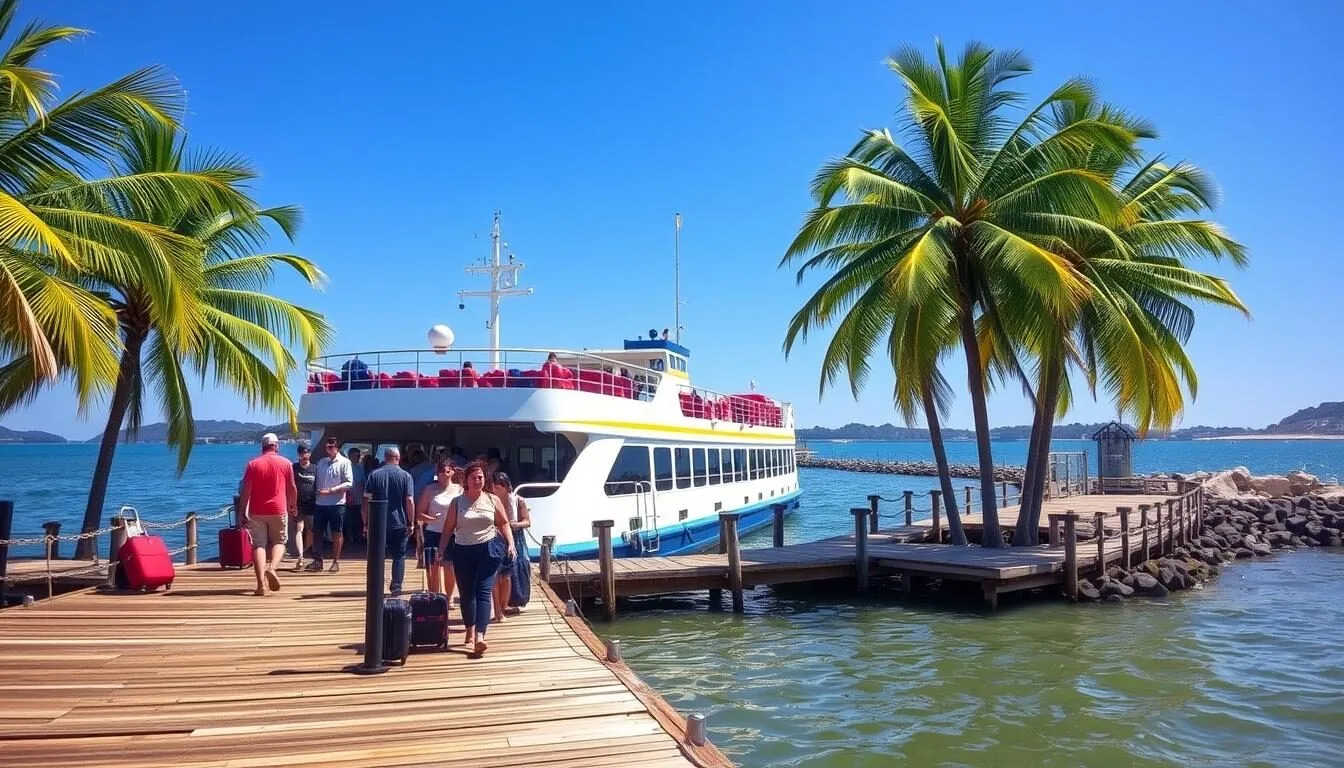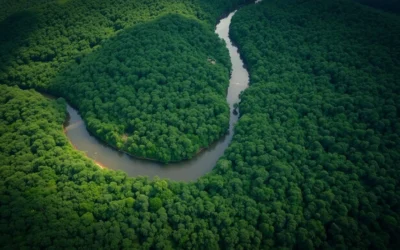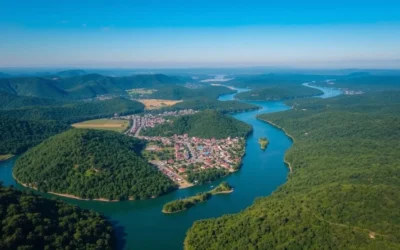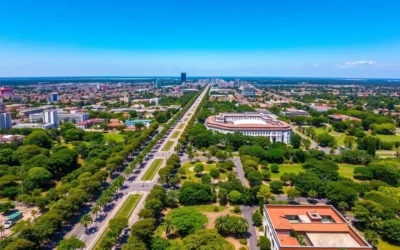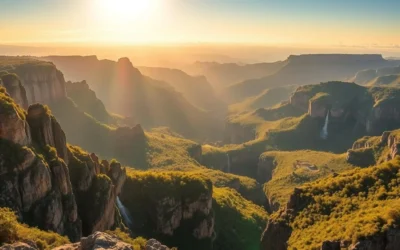Did you know that Morro de São Paulo is one of the few inhabited islands in Brazil where cars are completely banned? On this charming car-free paradise, goods and luggage are transported by wheelbarrows, creating a uniquely peaceful atmosphere that instantly disconnects you from the hustle of modern life. Located on Tinharé Island in Bahia state, just 60 km south of Salvador, this destination offers a perfect blend of natural beauty, vibrant nightlife, and laid-back beach culture that has made it a favorite among Brazilian and international travelers alike.
Getting There & Planning Your Journey
Reaching Morro de São Paulo requires some planning, but the journey is part of the adventure. There are three main routes from Salvador, the nearest major city:
Direct Catamaran from Salvador
The most popular option is taking a direct catamaran from Terminal Náutico in Salvador. The journey takes approximately 2-2.5 hours and offers beautiful views of the Bay of All Saints. Tickets cost around R$120-150 (one way) and should be booked in advance, especially during high season.
Semi-Terrestrial Route (Boat-Bus-Boat)
A more economical but longer option involves:
- Ferry from Salvador to Bom Despacho (1 hour)
- Bus from Bom Despacho to Valença (2 hours)
- Speedboat from Valença to Morro de São Paulo (40 minutes)
This route takes 4-5 hours total but costs less (around R$80-100) and may be preferable for those prone to seasickness, as the catamaran crossing can be choppy.
Air Taxi
For those with a higher budget, air taxis operate from Salvador Airport directly to Morro de São Paulo’s small airstrip. The flight takes only 30 minutes but costs significantly more (R$500+).
Important: Upon arrival in Morro de São Paulo, you’ll need to pay a tourist tax (around R$30 per person). Keep the receipt as you’ll need to show it when departing or taking day trips.
Best Time to Visit & Weather Tips
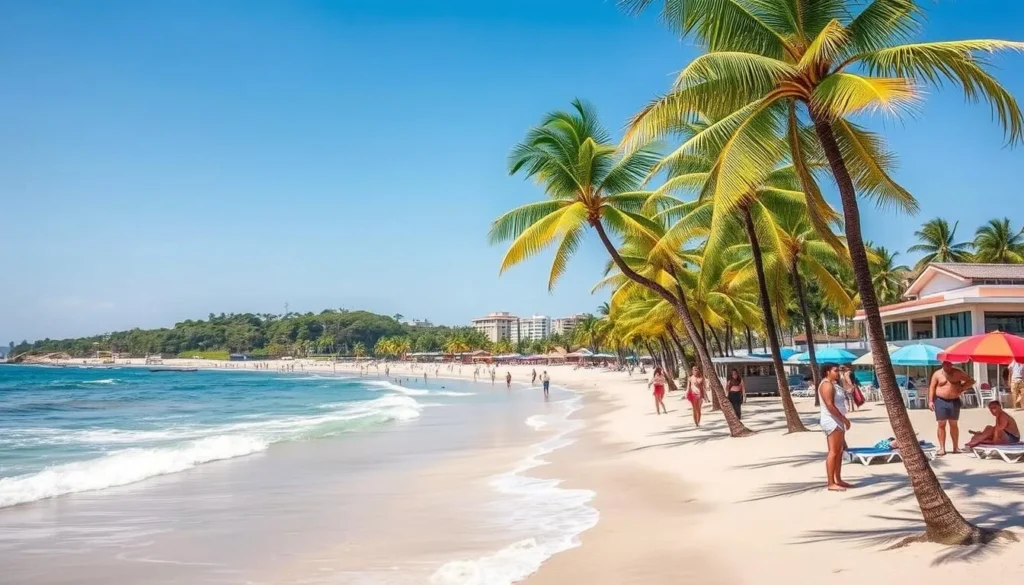
Morro de São Paulo enjoys a tropical climate with warm temperatures year-round, but there are distinct seasons to consider when planning your visit:
High Season (December to February)
This is summer in Brazil and the most popular time to visit. Expect:
- Temperatures between 25-30°C (77-86°F)
- Minimal rainfall
- Crowded beaches and higher prices
- Vibrant nightlife and events
- Advance bookings essential
Shoulder Season (March-May and September-November)
These months offer an excellent balance of good weather and fewer crowds:
- Temperatures around 23-28°C (73-82°F)
- Occasional short rain showers
- More affordable accommodation
- Still-lively atmosphere but less crowded
Low Season (June to August)
This is winter in Brazil, though still warm by international standards:
- Temperatures around 20-25°C (68-77°F)
- Higher chance of rainfall
- Lowest prices and fewest tourists
- Some restaurants and shops may close or operate with reduced hours
Packing Tip: Even during the rainy season, showers typically pass quickly. Pack light, breathable clothing, swimwear, sunscreen, insect repellent, and a light rain jacket or umbrella. Don’t forget comfortable walking shoes for the island’s hilly terrain.
Getting Around Locally
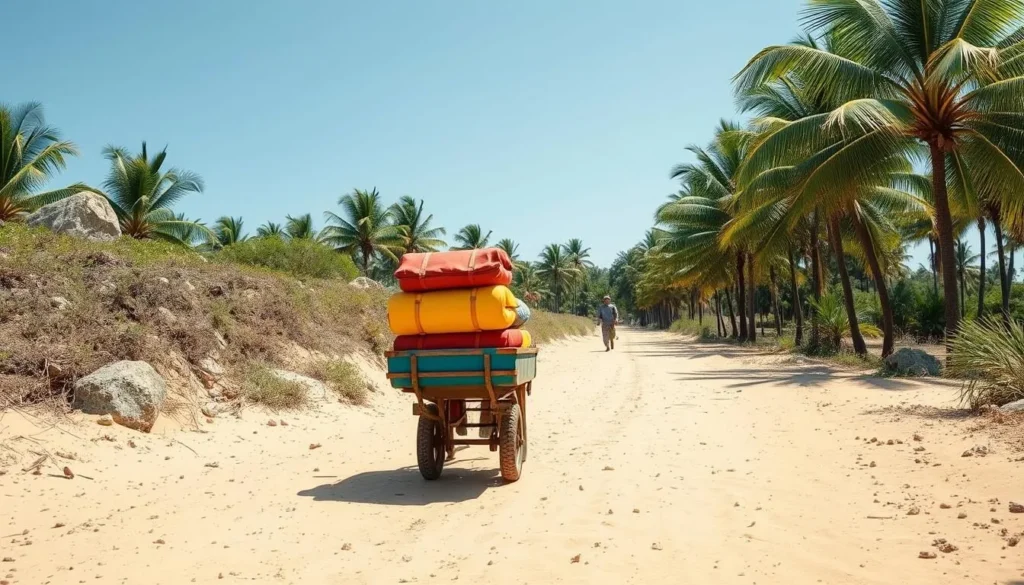
One of Morro de São Paulo’s most charming aspects is its car-free environment. Here’s how to navigate the island:
On Foot
Walking is the primary mode of transportation. The main village is compact and easily explored on foot. Beaches are connected by walking paths, and it takes about 30-40 minutes to walk from First Beach to Fourth Beach.
Wheelbarrows
When you arrive, porters with wheelbarrows will offer to transport your luggage to your accommodation for a fee (typically R$20-50 depending on distance and luggage amount). This service is worth using, especially if your accommodation is uphill or far from the arrival point.
Water Taxis
Small boats operate between beaches and to nearby locations like Gamboa. A boat ride to Gamboa costs around R$10-15 per person and takes about 10 minutes.
Guided Tours
For exploring further afield, guided tours by boat are available to destinations like Boipeba Island or for snorkeling trips to coral reefs.
Navigation Tip: The beaches are simply numbered (First Beach through Fifth Beach), making it easy to orient yourself. The village center is near First Beach, with each subsequent beach extending further south along the coast.
Where to Stay
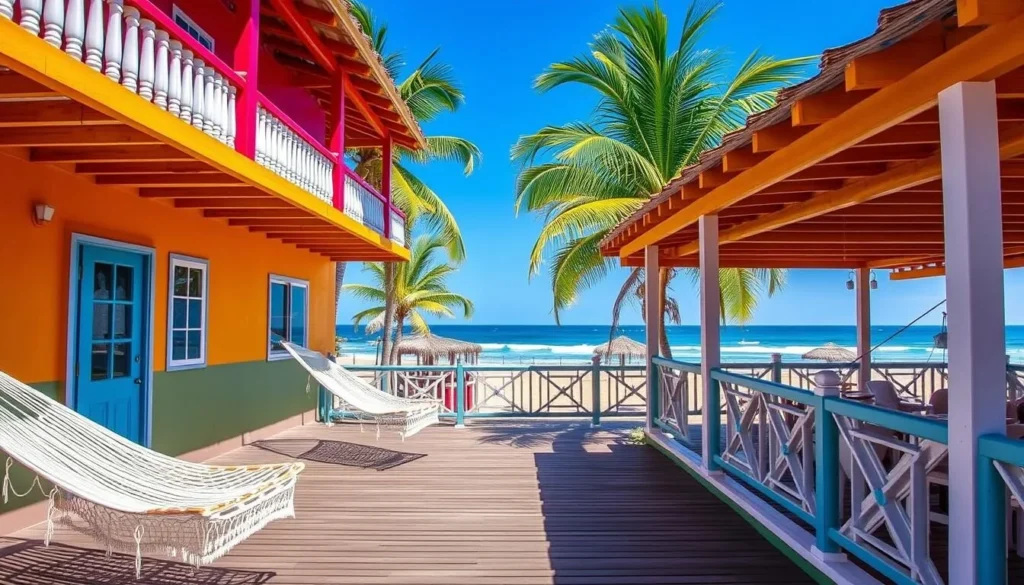
Accommodation in Morro de São Paulo ranges from budget hostels to luxury resorts. Where you stay will significantly impact your experience, as each beach area offers a different atmosphere:
First Beach (Primeira Praia) & Village Center
Best for: Easy access to village amenities and proximity to arrival point
- Pros: Convenient location, close to restaurants and shops
- Cons: Can be noisy, less scenic than other beaches
- Recommended for: First-time visitors, shorter stays
Second Beach (Segunda Praia)
Best for: Nightlife and social atmosphere
- Pros: Lively atmosphere, many beachfront bars and restaurants
- Cons: Crowded, noisy at night
- Recommended for: Young travelers, party-seekers
Third Beach (Terceira Praia)
Best for: Balance of convenience and tranquility
- Pros: Quieter than First/Second beaches but still accessible
- Cons: Limited dining options
- Recommended for: Couples, families
Fourth Beach (Quarta Praia)
Best for: Peaceful retreat
- Pros: Tranquil environment, beautiful natural setting
- Cons: Far from village center, limited facilities
- Recommended for: Nature lovers, those seeking seclusion
Find Your Perfect Stay
From beachfront pousadas to jungle hideaways, Morro de São Paulo offers accommodations for every preference and budget.
Dining & Local Cuisine
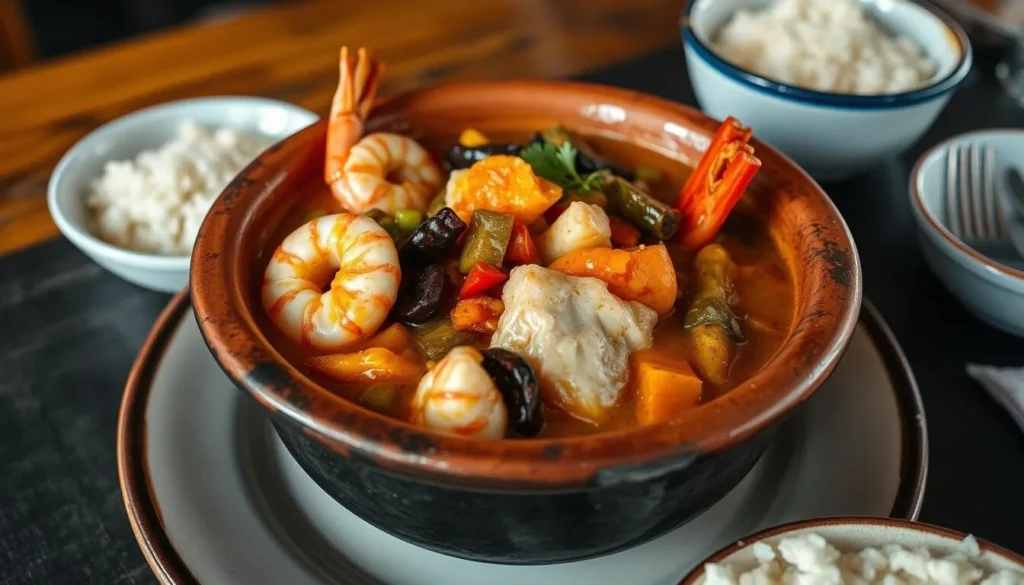
Morro de São Paulo’s cuisine reflects its coastal location and Bahian heritage, with fresh seafood and tropical fruits featuring prominently on menus:
Must-Try Local Dishes
- Moqueca: A delicious seafood stew made with fish or shrimp, coconut milk, palm oil, tomatoes, onions, and coriander
- Acarajé: Deep-fried balls of black-eyed pea dough filled with vatapá (spicy paste) and dried shrimp
- Bobó de Camarão: Shrimp in a purée of cassava, coconut milk, and palm oil
- Fresh Seafood: Grilled fish, lobster, and calamari caught daily
- Açaí: Frozen açaí berry pulp topped with granola and fruits, perfect for a refreshing snack
Where to Eat
Second Beach Restaurants
The most concentrated dining area with options ranging from casual beach bars to upscale restaurants. Try Restaurante Sambass for excellent seafood or Porto 23 for beachfront dining with sunset views.
Village Center
Several good options for breakfast and lunch, including Café do Morro for morning coffee and pastries.
Third and Fourth Beaches
More limited options but generally quieter and more romantic. Many resorts in these areas have their own restaurants.
Dining Tip: Beach bars (barracas) offer chair service where you can order food and drinks without leaving your beach spot. Most restaurants add a 10% service charge automatically. Credit cards are widely accepted, but it’s good to carry some cash for smaller establishments.
Attractions, Sightseeing & Activities
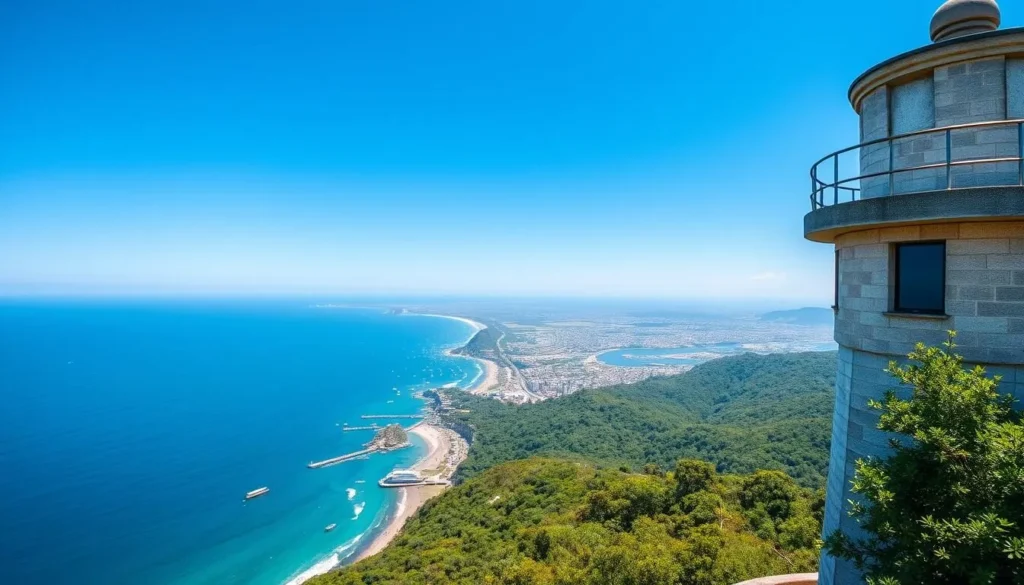
Morro de São Paulo offers a perfect blend of relaxation and adventure. Here are the top attractions and activities to enjoy during your stay:
The Beaches
The island’s four main beaches each have their own character:
- First Beach (Primeira Praia): Smallest beach, good for surfing when conditions are right
- Second Beach (Segunda Praia): The liveliest beach with bars, restaurants, and water sports
- Third Beach (Terceira Praia): Quieter with natural pools at low tide
- Fourth Beach (Quarta Praia): Long, tranquil stretch with few facilities, perfect for long walks
Historical Sites
- Fortress (Fortaleza do Tapirandu): 17th-century ruins offering historical insight and panoramic views
- Lighthouse (Farol do Morro): Climb up for spectacular views of the island and ocean
- Nossa Senhora da Luz Church: Historic church dating back to 1845
- Fonte Grande: Historic freshwater fountain that once supplied the island
Water Activities
- Snorkeling: Explore coral reefs and marine life, especially around Third Beach
- Stand-Up Paddleboarding: Available for rent on Second Beach
- Boat Tours: Day trips to nearby islands and snorkeling spots
- Zipline: Fly from the lighthouse down to First Beach for an adrenaline rush
Explore Morro de São Paulo
From thrilling water activities to cultural experiences, make the most of your island adventure.
Day Trips & Nearby Destinations
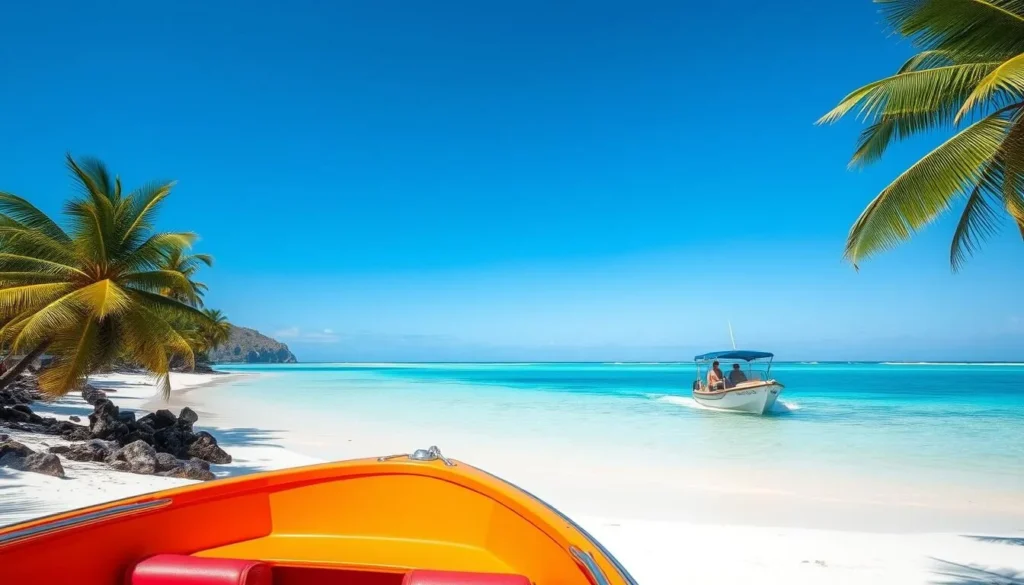
While Morro de São Paulo offers plenty to keep you occupied, several nearby destinations make for excellent day trips:
Boipeba Island
A more secluded island with pristine beaches and mangroves. Less developed than Morro de São Paulo, it offers a glimpse of traditional island life. Boat trips take approximately 40 minutes to 1 hour depending on the route.
Gamboa
A small fishing village just a short boat ride from Morro de São Paulo. Known for its quiet beach and natural clay deposits used for skin treatments. You can also hike there in about 45 minutes during low tide.
Garapuá
Located on the southern part of Tinharé Island, this fishing village features a beautiful beach with natural pools formed by coral reefs at low tide. Perfect for snorkeling. Accessible by boat tour or bicycle rental.
Cairu
A historic town on the mainland with colonial architecture and the oldest Franciscan convent in Brazil. Accessible by boat and worth visiting for history enthusiasts.
Day Trip Tip: Most tour operators in the village center offer organized day trips to these destinations. Prices vary depending on the destination and inclusions. For more flexibility, consider hiring a private boat for the day, which allows you to set your own schedule.
Nightlife & Entertainment
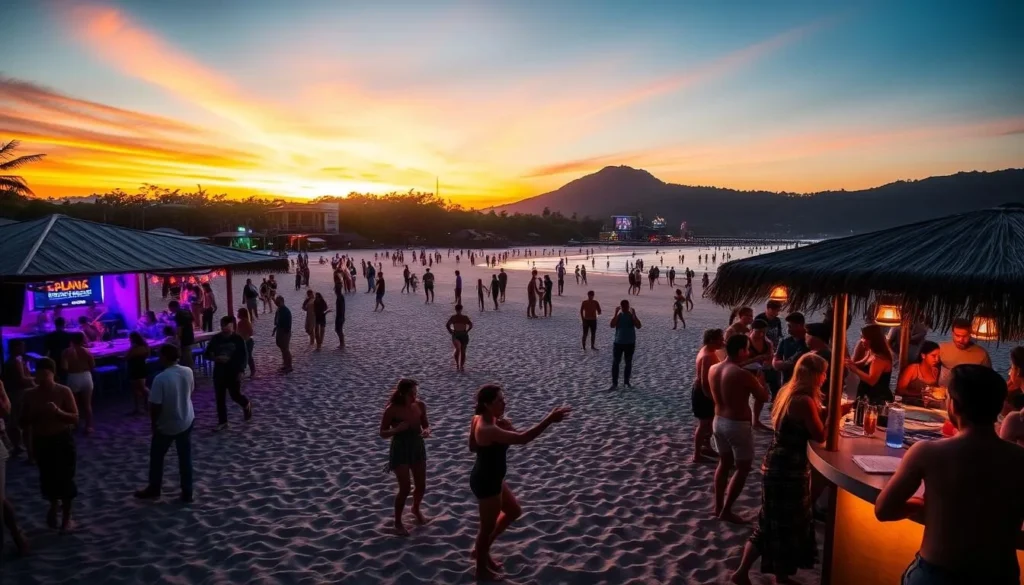
Morro de São Paulo is famous for its vibrant nightlife, especially during high season. The party atmosphere typically centers around Second Beach, with different venues hosting events throughout the week:
Beach Parties
During high season, beach parties with DJs and live music happen regularly on Second Beach. These typically start in the late afternoon and continue into the evening.
Popular Venues
- Toca do Morcego: Perched on a hilltop with panoramic views, this venue hosts sunset parties and nighttime events
- Teatro de Morro: Hosts various events including live music and cultural performances
- Pulsar Club: A nightclub that gets busy after midnight during high season
- Beach Bars: Many bars along Second Beach feature live music and DJs
Weekly Schedule
The nightlife schedule changes seasonally, but typically:
- Mondays & Thursdays: Beach parties (often free entry)
- Tuesdays & Sundays: Toca do Morcego
- Wednesdays: Teatro
- Fridays: Various venues
- Saturdays: Pulsar Club or other major venues
Nightlife Tip: Drink prices at venues can be high. Many visitors purchase drinks from small stores and enjoy them on the beach before heading to clubs. Always drink responsibly and be aware of your surroundings, especially when walking back to your accommodation at night.
Practical Travel Tips
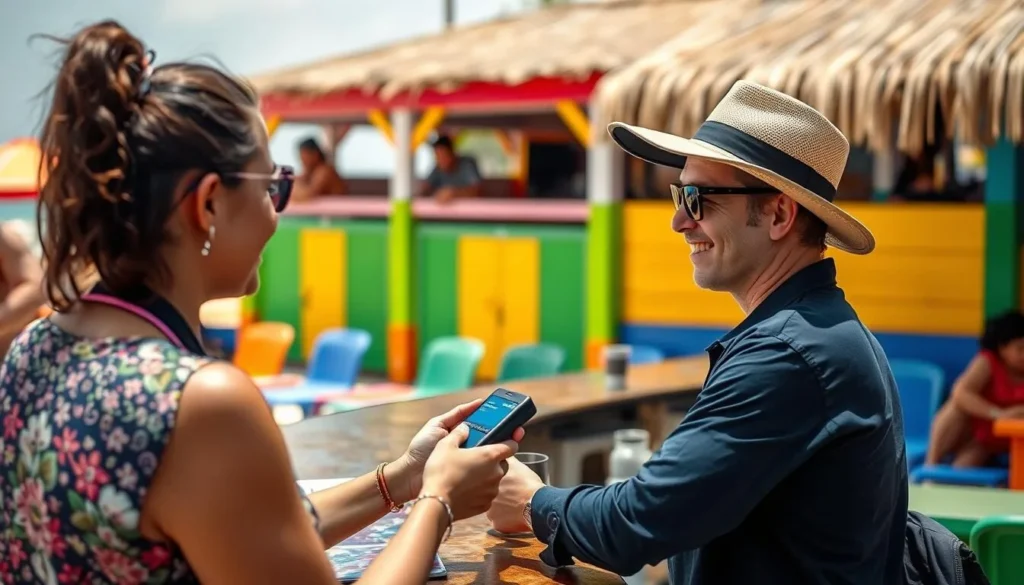
Money & Payments
- There are ATMs in the village center, but they sometimes run out of cash during high season
- Most restaurants and larger shops accept credit cards
- Smaller vendors and beach kiosks may only accept cash
- It’s advisable to bring some cash with you from the mainland
- The local currency is the Brazilian Real (R$)
Communication
- Cell phone coverage is generally good throughout the island
- Many accommodations, restaurants, and cafes offer free Wi-Fi
- Portuguese is the local language, but many in the tourism industry speak some English or Spanish
Health & Safety
- Morro de São Paulo is generally safe for tourists
- There is a small medical clinic on the island for minor issues
- For serious medical concerns, evacuation to the mainland would be necessary
- Travel insurance is highly recommended
- Use sunscreen and stay hydrated, especially during peak sun hours
Packing Essentials
- Lightweight, breathable clothing
- Multiple swimsuits
- Beach sandals and comfortable walking shoes
- Sunscreen, sunglasses, and hat
- Insect repellent
- Small waterproof bag for boat trips
- Portable charger
Local Etiquette Tip: Brazilians are generally relaxed and friendly. Greeting people with “Bom dia” (Good morning), “Boa tarde” (Good afternoon), or “Boa noite” (Good evening) is appreciated. Tipping around 10% in restaurants is customary, though it’s often included in the bill as “serviço.”
Suggested Itineraries
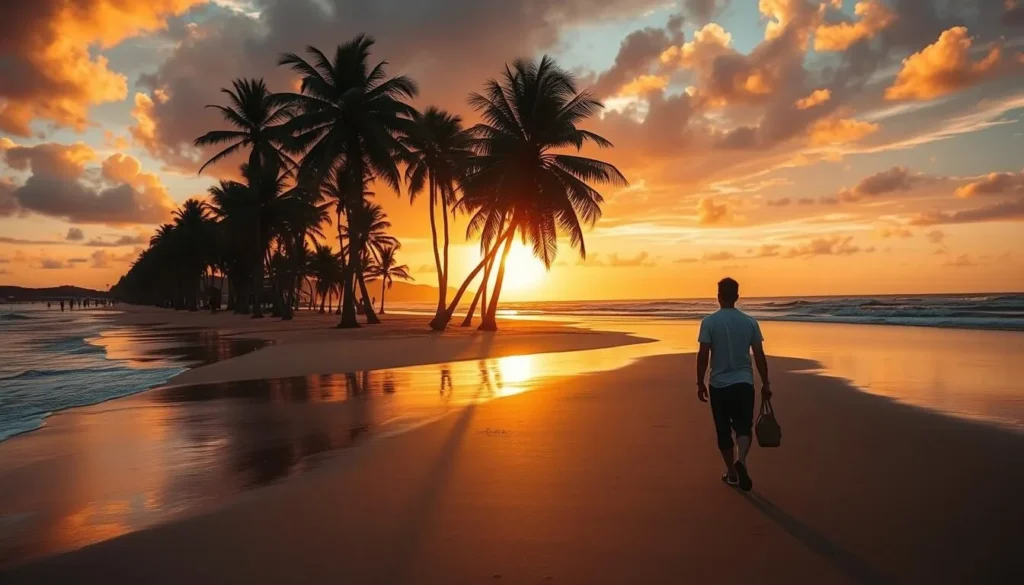
3-Day Getaway
Day 1
- Morning: Arrive and settle into accommodation
- Afternoon: Explore the village center and First Beach
- Evening: Dinner at a restaurant on Second Beach
Day 2
- Morning: Hike to the lighthouse for panoramic views
- Afternoon: Relax on Second Beach, try water sports
- Evening: Enjoy sunset at Toca do Morcego, followed by dinner and nightlife
Day 3
- Morning: Walk to Fourth Beach for tranquility
- Afternoon: Last-minute shopping in the village
- Evening: Departure or final dinner
5-Day Exploration
Days 1-2
Follow the 3-day itinerary above
Day 3
- Full-day boat tour to Boipeba Island
Day 4
- Morning: Snorkeling or paddleboarding
- Afternoon: Visit to Gamboa (by boat or hiking)
- Evening: Dinner at a restaurant on Third Beach
Day 5
- Morning: Relax at your favorite beach
- Afternoon: Last-minute activities or shopping
- Evening: Farewell dinner
Ready to Experience Morro de São Paulo?
Start planning your perfect island getaway today with these trusted travel partners.
Sustainable Tourism
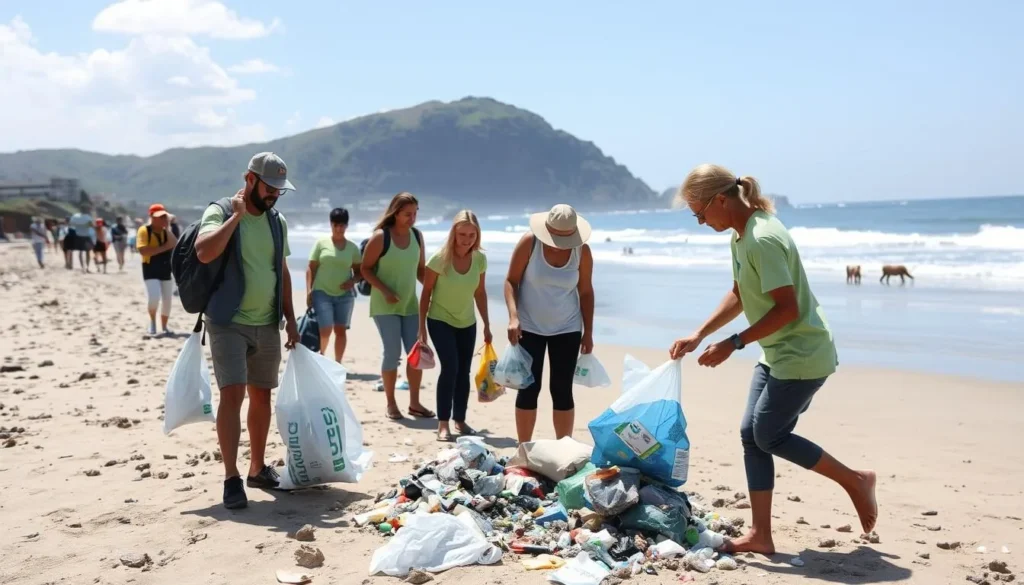
Morro de São Paulo’s natural beauty is its greatest asset, and preserving it is crucial for the island’s future. Here are some ways to be a responsible visitor:
Environmental Considerations
- Avoid single-use plastics; bring a reusable water bottle
- Properly dispose of all waste; never leave trash on beaches
- Use reef-safe sunscreen to protect coral reefs
- Respect wildlife and natural habitats
- Stay on designated paths when hiking
Supporting Local Communities
- Purchase souvenirs from local artisans
- Eat at locally-owned restaurants
- Consider staying at family-run pousadas
- Respect local customs and traditions
- Learn a few basic Portuguese phrases
Eco-Friendly Tip: Some accommodations and tour operators in Morro de São Paulo have adopted sustainable practices. Look for those that minimize environmental impact, employ local staff, and contribute to community projects.
Conclusion
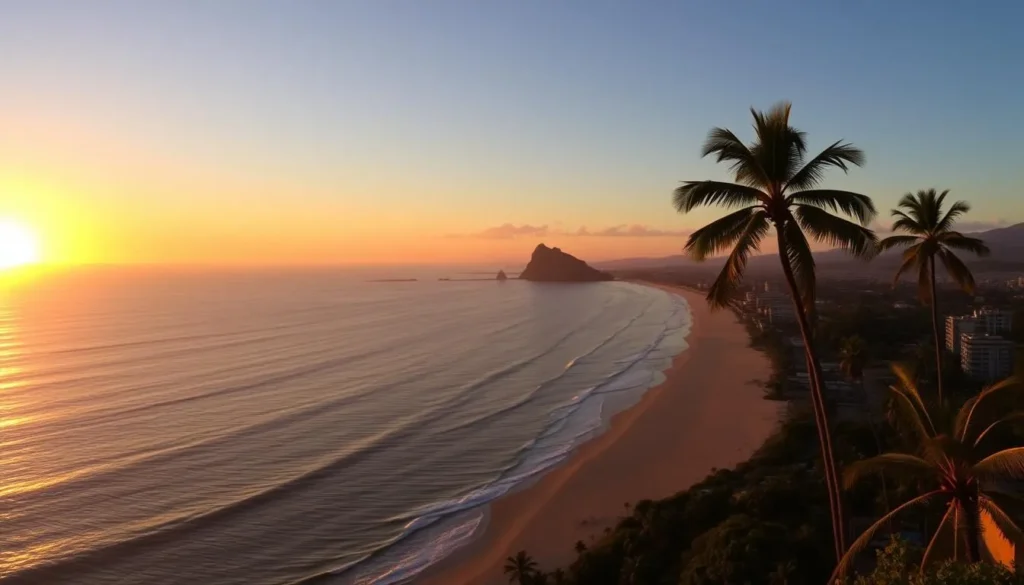
Morro de São Paulo offers a unique blend of natural beauty, adventure, relaxation, and vibrant culture that makes it one of Brazil’s most special destinations. From the moment you step off the boat and feel the sand between your toes, the island’s car-free simplicity and stunning beaches create an atmosphere that’s both energizing and deeply relaxing.
Whether you’re seeking adventure through water sports and hiking, cultural experiences through local cuisine and history, or simply want to unwind on pristine beaches, Morro de São Paulo delivers an authentic Brazilian island experience that will leave you with lasting memories.
The extra effort required to reach this paradise is richly rewarded with experiences that can’t be found at more accessible destinations. So pack your swimsuit, bring your sense of adventure, and prepare to discover why visitors from around the world fall in love with this special corner of Bahia.
Begin Your Morro de São Paulo Adventure
Paradise awaits on this enchanting Brazilian island.
The above is subject to change.
Check back often to TRAVEL.COM for the latest travel tips and deals.
